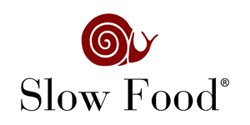Archive for December 2012
Strong U.S. Presence at 2012 Global Meeting of Slow Food/Terra Madre
 The Slow Food movement has an extensive network of 100,000 members in 1,300 local chapters across 150 countries. Described on its website as “committed to improving the way food is produced and distributed,” Slow Food has a strong presence in the United States with more than 200 local chapters, and at least one chapter in each of the states (except Mississippi, Montana, North Dakota and South Dakota) plus a chapter in the District of Columbia. Four states have 10 or more chapters: California, 33 chapters; Washington, 13 chapters; New York, 13 chapters; Florida, 10 chapters. In Canada, there are 26 local chapters, with 10 chapters in the province of Ontario.
The Slow Food movement has an extensive network of 100,000 members in 1,300 local chapters across 150 countries. Described on its website as “committed to improving the way food is produced and distributed,” Slow Food has a strong presence in the United States with more than 200 local chapters, and at least one chapter in each of the states (except Mississippi, Montana, North Dakota and South Dakota) plus a chapter in the District of Columbia. Four states have 10 or more chapters: California, 33 chapters; Washington, 13 chapters; New York, 13 chapters; Florida, 10 chapters. In Canada, there are 26 local chapters, with 10 chapters in the province of Ontario.
The Terra Madre network was launched by Slow Food in 2004 and is made up of small farmers and producers, as well as cooks, academics, consumers, non-government organizations, who come together to discuss collaboratively how to improve the food system at meetings held at the global, regional and local level. Carlo Petrini (the founder of the Slow Food movement in 1989 as an outgrowth of his campaign against the McDonald’s fast food chain opening near the Spanish Steps in Rome) in his Terra Madre, Forging a New Global Network of Sustainable Food Communities emphasizes that the Slow Food movement was only the catalyst for establishing the Terra Madre movement: “It is Slow Food that is part of the Terra Madre network, and not vice versa.” Terra Madre envisions a world agriculture “that takes in ‘sacredness’ of food, respect for the environment, sociality [emphasis added], conviviality and culture.”
Every two years, the Slow Food/Terra Madre movement holds a global food festival in Turin, Italy showcasing quality, small-scale food producers from around the world committed to the values of the movement. This year’s festival, “Salone del Gusto and Terra Madre 2012,” had a strong educational focus, with emphasis on raising awareness and stimulating debate about the future of food production. In addition, at the 2012 gathering, 103 U.S. delegates participated in the Slow Food Congress, a meeting of Slow Food and Terra Madre leaders worldwide that happens every five years where management bodies are elected and decisions are made regarding Slow Food’s worldwide strategies for developing the association, the Terra Madre network and projects to defend biodiversity.
At the 2010 global food festival, there were no American exhibitors included in the Slow Food Presidia, which highlights various projects around the world, which support small-scale, artisinal and traditional food production. At the gathering this fall, four American exhibitors were included in the Slow Food Presidia: (1) the Sebastopol Gravenstein Apple, first planted in California’s Sonoma County in 1811 by Russian trappers; (2) the Navajo-Churro Sheep, brought into New Mexico’s Rio Grande Valley by Spanish explorers in the 16th century; (3) the Anishinaabeg Manoomin Rice, this “wild rice” known as “the good grain” by the Anishinaabeg people grows best in the shallow waters of the Great Lakes region of Minnesota, Wisconsin, Michigan and Ohio, and (4) American raw milk cheeses.
An American presence was also felt in the opening ceremonies for the 2012 gathering. Alice Waters, the famous chef and originator of the modern farm to table dining movement in the United States with her establishment decades ago of Chez Panisse in Berkeley, California, and who currently serves as a Slow Food vice-resident, talked about education with Nickki Henderson of the People’s Grocery in Oakland, California. Chef Waters’ credentials as a food educator are rooted in the inspiring Edible Schoolyard program [www.edibleschoolyard.org] operated by the Chez Panisse Foundation, a non-profit organization. The Edible Schoolyard’s one-acre garden, first planted at the Martin Luther King Middle School on Rose Street in Berkeley, California in 1995, remains a thriving acre of vegetables, fruits, herbs and flowers. The Edible Schoolyard program in Berkeley has hosted thousands of visitors each year, and now has a network of Edible Schoolyard programs across the country. Alice Waters also serves on the Advisory Board for the Yale [University] Sustainable Food Project, which in May, 2003, established The Farm, a productive organic farm that produces hundreds of varieties of vegetables, fruits, herbs, and flowers at a location just a short walk north of Yale’s Old Campus. Only one acre, The Farm is described on the website of the Yale Sustainable Food Project as a “4 season market garden” [www.yale.edu/sustainablefood/farm.html]. No surprise, that Yale scored a perfect 10 out of 10 in the category for Food in the Sierra Club’s ranking of “planet preserving colleges and universities.
More than 70 conferences were held during the 2012 festival, which were “free to all Salone Del Gusto and Terra Madre visitors,” and included “The Grassroots of the Revolution: Edible Education” led by Ms. Waters. According to the description of this “edible education” conference, “Food is the perfect medium to teach every child the values that we need to live together on this planet. An Edible Education is the most delicious and democratic solution to the problems we face.” [Other conferences offered during this year’s festival included “Waste Not, Want Not,” “Feeding Cities is Easy,” and “Indigenous Peoples and Local Food Sovereignty- A struggle for self-determined development.”]
At the 2010 food festival, the only products from the U.S. on exhibit were beers at the American Brewers Association exhibit. This years festival’s included a special focus on the international beer scene and heavily featured the U.S. At a sold-out Taste Workshop (one of over 100 workshops), Charlie Papazian, founder and president of the American Brewers Association looked at the development of the booming American microbrewery industry and presented six choice microbrews from six American states for the audience to savor.
The Slow Food Movement’s Ark of Taste foods, heritage foods in danger of extinction (which are catalogued and promoted by the movement), were also highlighted at the 2012 gathering. Included in the Ark of Taste catalogue are over 200 foods from the United States, second only to Italy’s over 400 Ark of Taste Foods. Canada is represented by 13 Ark of Taste foods. By its foundation of the Ark of Taste in 1996 and its continuing expansion, the Slow Food Foundation for Biodiversity hopes “to promote the growing and eating of foods which are sustainable” and “to preserve biodiversity in the human food chain.”
Carlo Petrini, a modern-day Biblical Noah, in his speech on opening day of the 2012 festival, described his “mission” as making the biannual Salone del Gusto and Terra Madre “the biggest gastronomy and food event in the world.” The success of the 2012 festival is proof of this mission accomplished as well as proof that the Slow Food movement’s ark, safeguarding the food heritage of our planet, remains afloat. (FW Barrie, 12/11/12)
[The short videos of Stephen Scott of Terroir Seeds, who was a U.S. delegate at the 2012 Terra Madre & Salon del Gusto global gathering, capture the flavor and scope of this fall’s joyful celebration of local, sustainable, heritage and Slow Food. FWB (12/21/12)]







